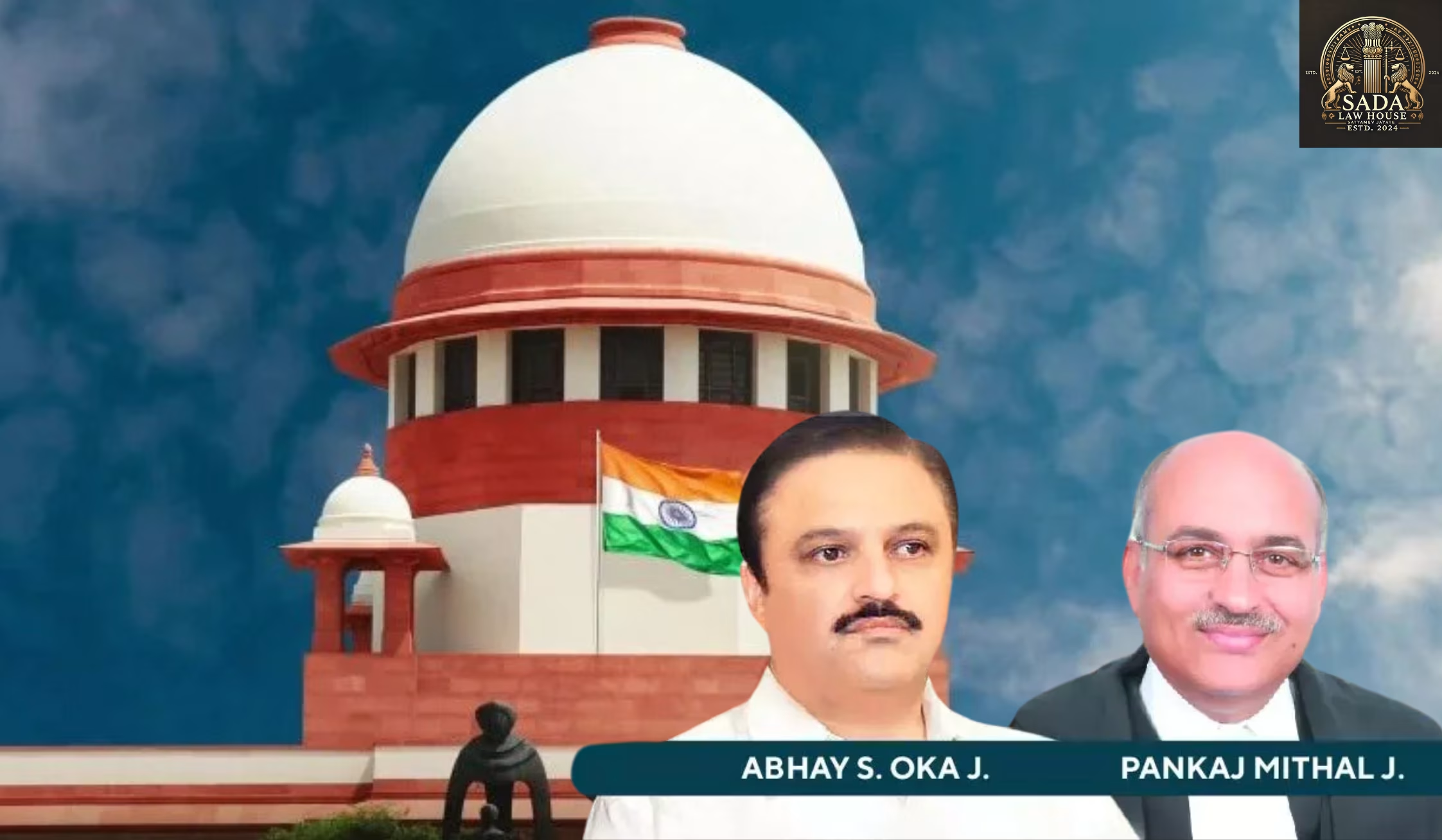Supreme Court Limits Appellate Powers Under Arbitration Act: Avoid Bulky Submissions, Stresses Efficiency
- REHA BHARGAV
- 02 june 2025

The Supreme Court, in Bombay Slum Redevelopment Corporation Pvt. Ltd. v. Samir Narain Bhojwani, emphasized the need for brevity in arbitration appeals and clarified limits on appellate powers under Section 37 of the Arbitration and Conciliation Act, 1996.
Introduction: Key Takeaway from the Supreme Court’s Decision
In a landmark judgment dated July 8, 2024, the Supreme Court of India addressed significant legal issues concerning arbitration law, particularly the scope of appellate authority under Section 37 of the Arbitration and Conciliation Act, 1996. The case, Bombay Slum Redevelopment Corporation Pvt. Ltd. v. Samir Narain Bhojwani, revolved around a dispute over a slum redevelopment project in Mumbai and highlighted the importance of efficiency and brevity in arbitration proceedings.
Case Background: Facts and Timeline
Parties Involved
Petitioner: Bombay Slum Redevelopment Corporation Pvt. Ltd. (BSRCL)
Respondent: Samir Narain Bhojwani
Development Agreement Dispute
In 2003, both parties entered into a development agreement for a slum rehabilitation project. SNB was responsible for constructing 120 flats, with 55% allocated to BSRCL and 45% to SNB. However, disputes soon arose over performance and obligations.
Arbitral Award (2018)
An Arbitral Tribunal ruled in favor of SNB, ordering BSRCL to hand over possession of certain flats.
High Court Proceedings
BSRCL challenged the award under Section 34.
A Single Judge set aside the award.
SNB appealed under Section 37, and a Division Bench remanded the matter back to the Single Judge without ruling on merits.
Key Legal Issue
Can an appellate court under Section 37 remand a case, or is its role limited to affirming, modifying, or setting aside an arbitral award?
This central issue called into question the extent of appellate powers under the Arbitration and Conciliation Act.
Arguments Presented
Appellant (BSRCL)
Asserted that Section 37 restricts appellate courts from remanding cases.
Argued that remanding prolongs litigation and defeats the purpose of arbitration as a time-efficient dispute resolution mechanism.
Respondent (SNB)
Defended the Division Bench’s action as judicial discretion.
Cited past precedents where remands were made to ensure fair adjudication.
Supreme Court Judgment Highlights
Limited Scope of Section 37
The Supreme Court set aside the Division Bench’s remand order, stating that:
Appellate courts under Section 37 do not have blanket powers to remand matters.
Remands are permissible only in rare and unavoidable circumstances.
Brevity in Arbitration Submissions
The Court strongly discouraged bulky pleadings and lengthy submissions, emphasizing:
The need to maintain efficiency in arbitration proceedings.
That lawyers and litigants should prioritize clarity and conciseness.
Next Steps
The matter was restored to the Division Bench of the Bombay High Court with instructions to decide the appeal on its merits, considering both the arbitral award and the Single Judge’s decision.
Conclusion: Upholding Arbitration Efficiency and Judicial Discipline
This decision reinforces the Supreme Court’s commitment to ensuring speedy and effective resolution of disputes through arbitration. By limiting appellate intervention and promoting brevity in pleadings, the Court aims to prevent arbitration from becoming as time-consuming as traditional litigation.
Key Takeaways for Legal Professionals
Avoid excessive documentation in arbitration appeals.
Understand the limited powers under Section 37 before filing appeals.
Embrace concise and well-structured submissions to align with judicial expectations.
Case Laws






